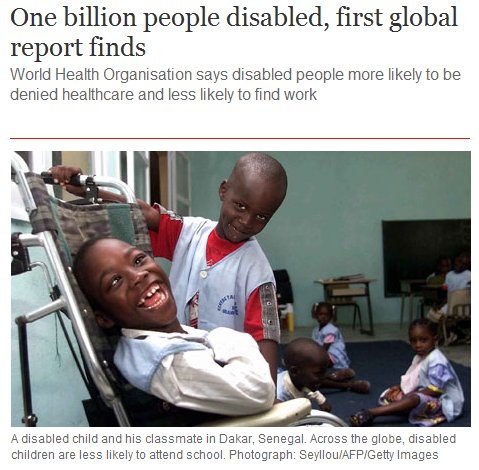 |
| A Disabled Boy's Death: A failure to protect" New York Times, 6 June 2011 |
It was going to be a litany of frequently cancelled therapy sessions (a mere drop in the bucket even when they take place) and incompetent teachers and aides. I was going to complain about the utter lack of progress that the staff has achieved with C. during the nine years she has spent under their care.
I was going to blame the administrator who took over the school's helm three years ago from someone who was found to have stolen millions of dollars from the school during his many years of directorship.
I was going to point to the skills, modest though they are, that C. has learned at home from me and from a private therapist who worked with her for several months. I was also going to praise the hydrotherapists at the school who have managed to teach C. how to float on her back and kick, unsupported. If we could do that, why can't the rest of the staff make any headway?
But my gripes paled to near-insignificance after I read: "A Disabled Boy's Death, and a System in Disarray" [here]. This is a shocking account of the the abuse and death of an autistic 13-year old boy.
...
There is more bad news for those concerned about people with disabilities. A new report prepared jointly over four years by the World Health Organization and the World Bank found that despite much progress, the disabled remain second-class citizens. One in five of them experience "significant difficulties". One of the authors of the report said: "The clear message is...that there is no country that has got it right."
Actually, "disarray" is the understatement of the century: The victim lived in one of the nine remaining large New York institutions housing the developmentally disabled. The indifference, cruelty and general rot that is rife in those institutions makes for difficult - but required - reading.
There is more bad news for those concerned about people with disabilities. A new report prepared jointly over four years by the World Health Organization and the World Bank found that despite much progress, the disabled remain second-class citizens. One in five of them experience "significant difficulties". One of the authors of the report said: "The clear message is...that there is no country that has got it right."
Here are two articles that summarize the report, compiled by 360 researchers, many of them disabled, in greater detail: One billion people disabled, first global report finds (The Guardian); and Report: 15 percent of world population is disabled (Washington Post).
 |
| From The Guardian, 9th June 2011 |
No comments:
Post a Comment